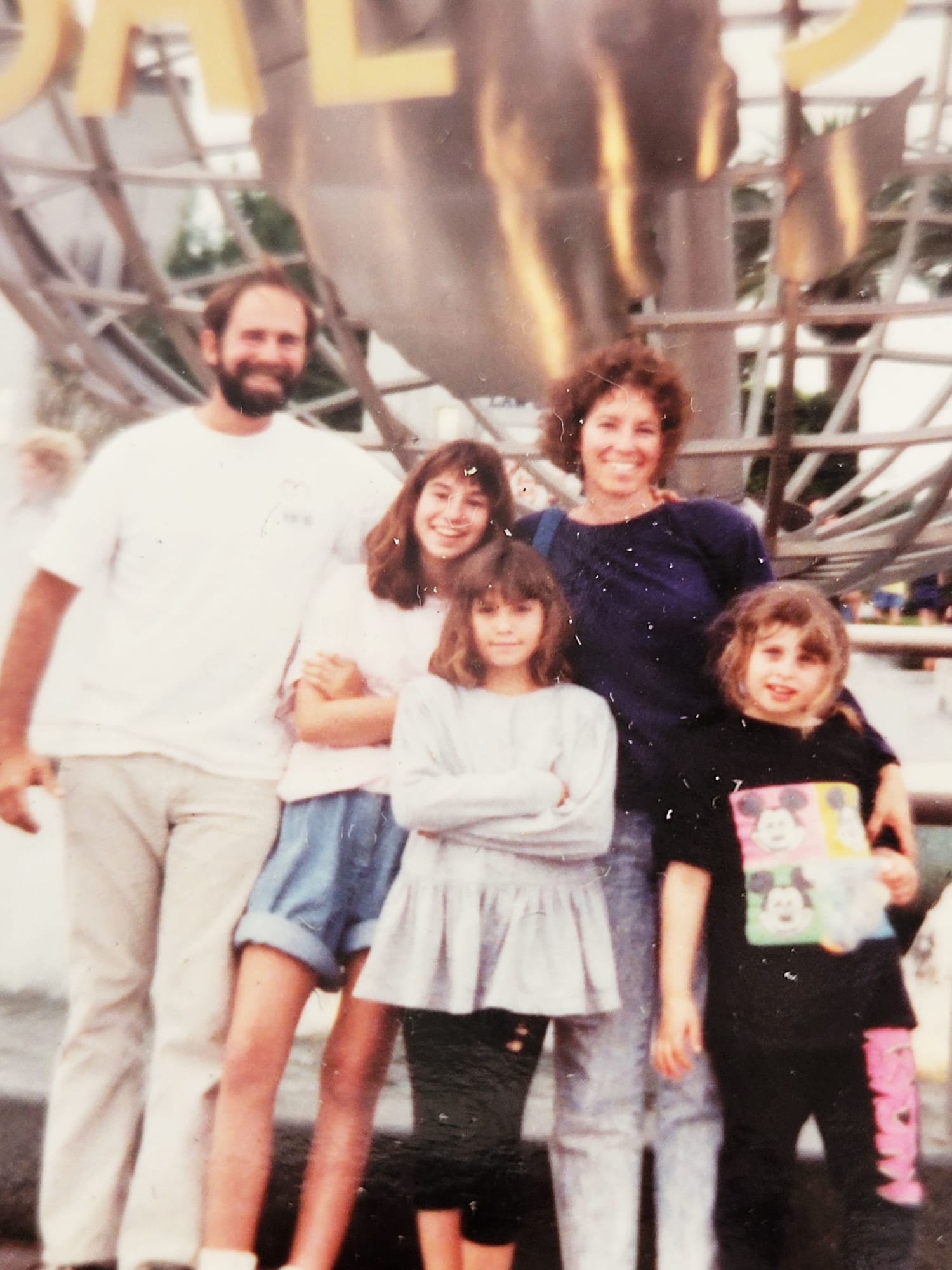My 40-year-old daughter has cerebral palsy and an intellectual disability, and over the years I can’t tell you how many times I’ve heard, “God only gives special-needs children to special people.” I’ve often resisted the urge to retort, “Add that to the list of things God forgot to give you.” But I never did.
I don’t have enough courage.
Instead, I politely nod, maybe say “thank you,” and let my indignation grow. These well-intentioned sentiments often sound like compliments, but frankly, they irritate me. And I’m sure I’m not the only one who feels that way. According to a 2021 Census Bureau report, the nation’s child disability rates have been rising since the early 1990s. In 2019, an estimated 2.6 million households had at least one child with a disability, the report said.
Daughter as a young girl. Courtesy of Catherine Shields
Back in the ’80s, it took me years to accept my daughter’s diagnosis. As I sought medical services and treatment for her, I was convinced she would magically recover. Today, there is a movement in the disability community to encourage people with disabilities to be proud of who they are, disability included, but when my daughter was little, I struggled with that concept. At the time, I wanted to separate her from her disability.
Perhaps that’s why some of these comments irritated me so much: even today, I still don’t appreciate them.
It didn’t help matters at all when, in line at the grocery store, while my daughter was in the throes of uncontrollable panic, I heard the person behind me utter this simplistic phrase as if they were revealing a secret: “God only gives children with special needs to special people,” they said, as so many others have said. I pictured myself grabbing all of their items, shoving them off the conveyor belt, and sneering, “They got what they deserved.”
One more thing I haven’t done yet.
That statement still feels condescending to me, as do other statements I often hear, “What a blessing it is to have this child” and “You are so blessed.”
The family on vacation when the children were young. Photo courtesy of Catherine Shields
These heartfelt sentiments, given as gifts, are of no use. I certainly don’t feel blessed or special. And don’t we all deserve to be treated differently because of our differences? Instead of making “God” comments or general comments, why not acknowledge our child’s accomplishments? Or the efforts we put in to overcome the daily challenges of being parents? It’s nice when someone says, “I know it’s hard, but it seems like you’re handling it well.”
Or, even better, “Is there anything I can help you with?”
Raising a child who deviates from the societal norm can be incredibly isolating. I now understand that it is impossible to separate my daughter from her disability. I know that she has her own unique perspective on the world around her. That is who she is. Now I understand God’s Word, but I couldn’t understand the criticism and judgment from people who failed to recognize my daughter’s atypical behavior, even if I didn’t like it. A few years ago, when we were at a shopping mall, my daughter refused to go into a public restroom stall with me. A woman came running in and asked why my daughter was screaming. “We heard a commotion and came here. We thought someone was hurt.”
When I realized it was just a contest of wills, she muttered something about how some people don’t know anything about controlling their children. I was too embarrassed to reply.
Recommendation
I felt humiliated.
My daughter is now an adult. Here she is at my book launch. Courtesy of Catherine Shields
Life often brings unexpected journeys. Being a parent of a child with a disability, I have had to walk a tough road. It is time to enlighten people on what to say and what not to say to marginalized parents.
I recently heard this comment from someone who has a son with a disability, and it captured the essence of what I’ve experienced over the years: “Sometimes the things we cannot change end up changing us.”
Now I have a better understanding of who my daughter is and that her disability is a part of her. But I still don’t like it when people brazenly tell me I’m “blessed.”
This captures the transformative power of acceptance and resilience in the face of adversity and, at least for me, is the perfect alternative to the God quote. Most of us believe we should just keep going and not complain when we hit a wall. This acknowledges the journey of parents of children with disabilities. Instead of dwelling on what we can’t change, we need to be resilient and adaptable. Raising my daughter has shaken my ableist beliefs, shifted my perspective, and ultimately taught me the power of acceptance.
I realized that God doesn’t give special children to special people, but that each and every one of us is special.
Catherine Shields

